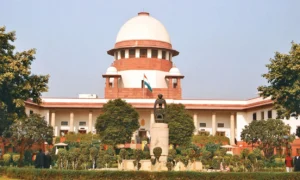
Guidelines for Khula Divorce
Hyderabad, July 6: In a landmark move hailed as a progressive stride for Muslim women’s rights, the Telangana High Court has laid down clear procedural guidelines for granting Khula — a form of divorce initiated by a Muslim woman — under Muslim personal law, without requiring the husband’s consent.
The division bench comprising Justice Moushumi Bhattacharya and Justice BR Madhusudhan issued the verdict in response to multiple pending cases, aiming to streamline the process and ensure justice is both accessible and equitable. The court’s order outlines the responsibilities of all stakeholders — including the wife, husband, religious scholars (muftis), and family courts.
Key Highlights of the Verdict:
-
Reconciliation First: The court emphasized that reconciliation efforts must be attempted before Khula is granted, aligning with the Quranic directive from Chapter 4, Verse 35.
-
No Husband Veto: The husband does not have the authority to block the woman’s right to Khula. His refusal to agree cannot override her decision.
-
Advisory Role for Scholars: Any fatwa or khulanama (divorce certificate) issued by Muslim scholars or muftis will be considered non-binding. It serves as advisory, not legal proof of divorce.
-
Legal Recourse Available: If a husband disagrees with a religious scholar’s recommendation, he has the right to challenge it through legal channels.
-
Swift Court Disposal: Family courts are instructed to resolve all pending and future Khula petitions promptly, ensuring time-bound and summary proceedings.
“A Balanced, Forward-Thinking Verdict”
The decision is seen as a major milestone in reconciling traditional Islamic customs with the constitutional principles of justice and gender equality.
“This verdict satisfies conservative religious scholars by allowing religious mediation but also empowers Muslim women seeking swift relief from unhappy marriages,” said advocate Mubasher Hussain Ansari, who represented the petitioner in the case.
Legal Experts Applaud Progressive Step
Legal professionals and women’s rights advocates have welcomed the ruling, calling it a “beacon of hope” for Muslim women not just in Telangana, but across India. “It brings much-needed clarity and protects women from prolonged emotional and legal battles,” noted family law expert Zehra Naqvi.
Understanding Khula
Khula is a dissolution of marriage permitted in Islamic law, where a woman may seek divorce by returning her mehr (dowry) or other agreed compensation. The court clarified that such a return may not always be necessary and would depend on mutual understanding or judicial review.
As Muslim women continue to fight for equitable rights within personal law frameworks, this judgment marks a crucial turning point — ensuring dignity, choice, and due process for those seeking freedom from marital discord.
This article is published by Crime Today News ©






